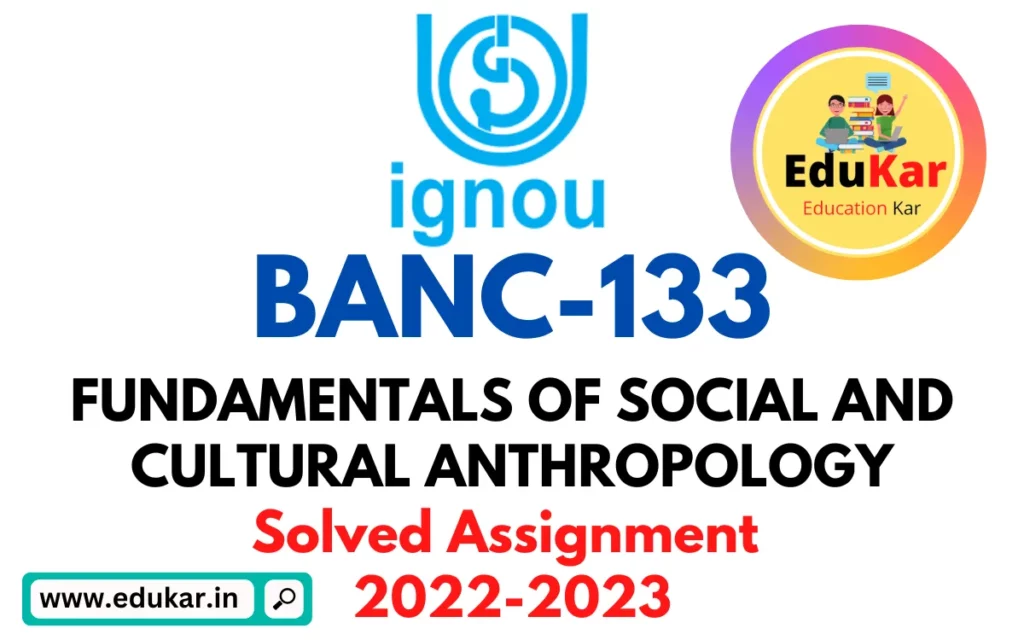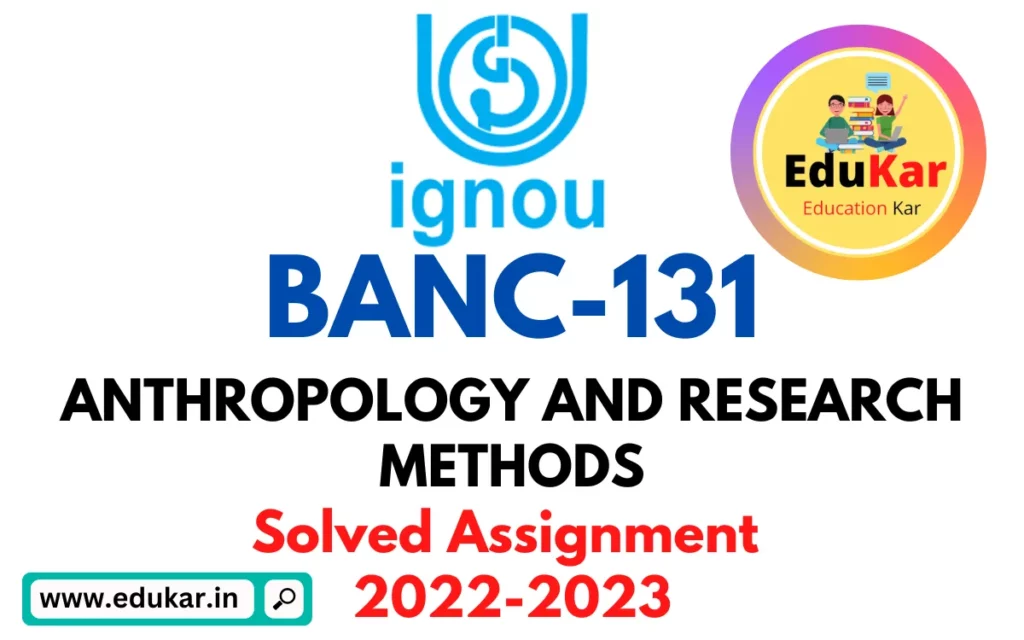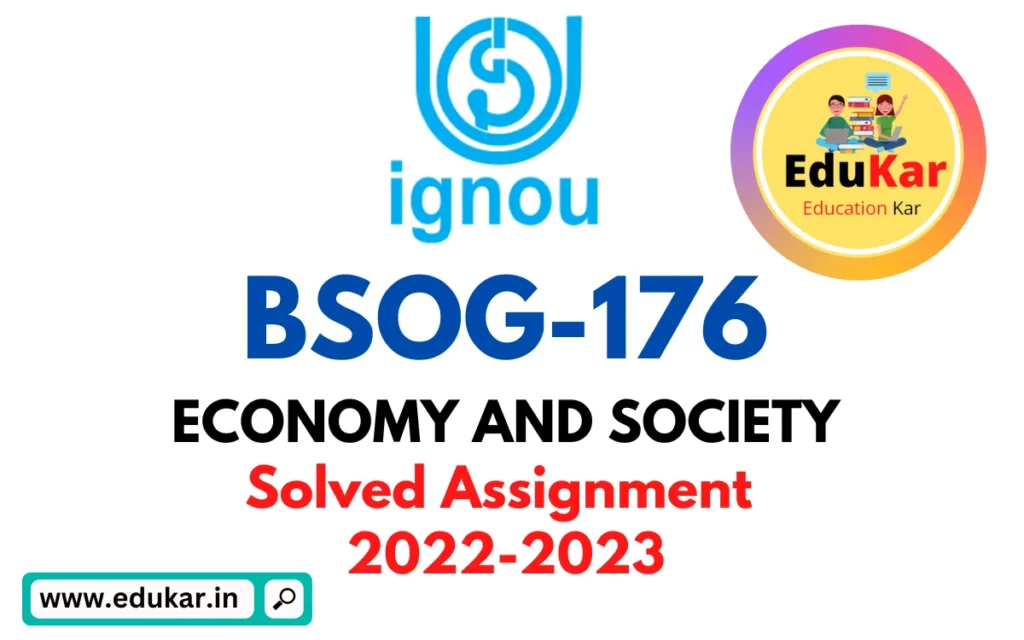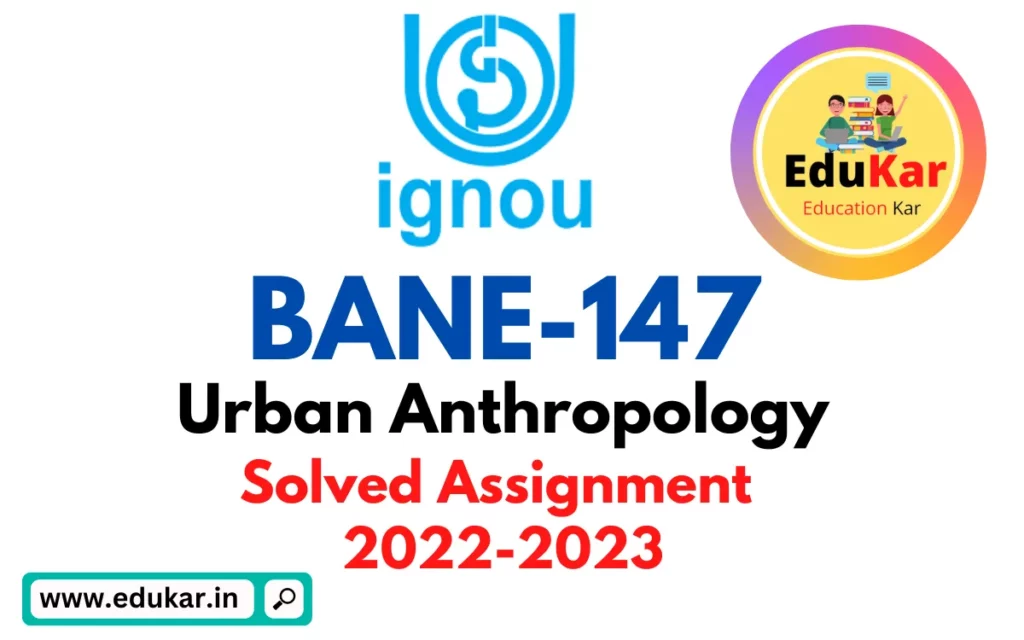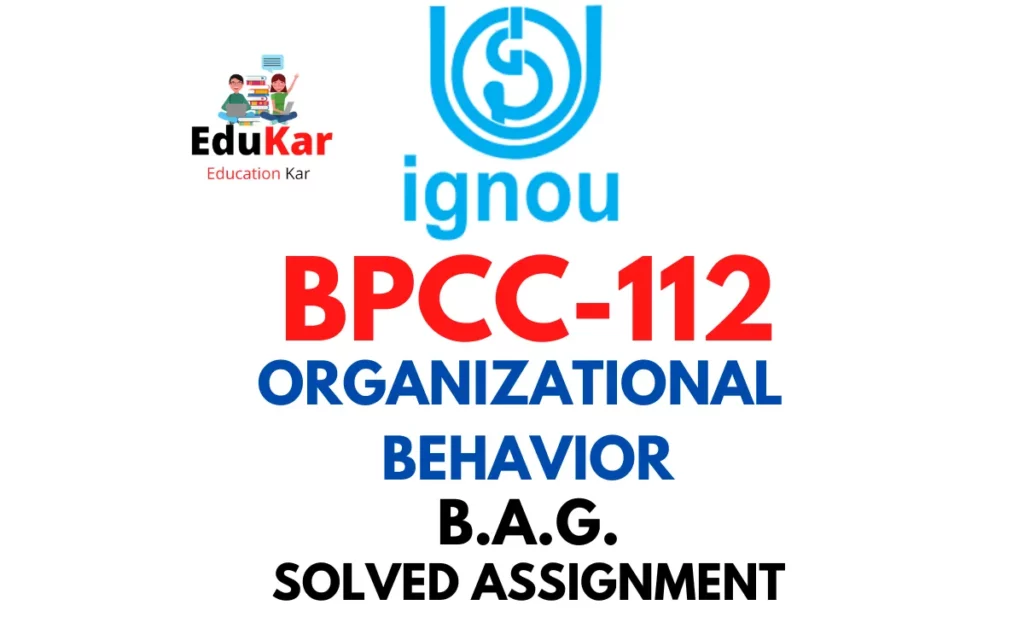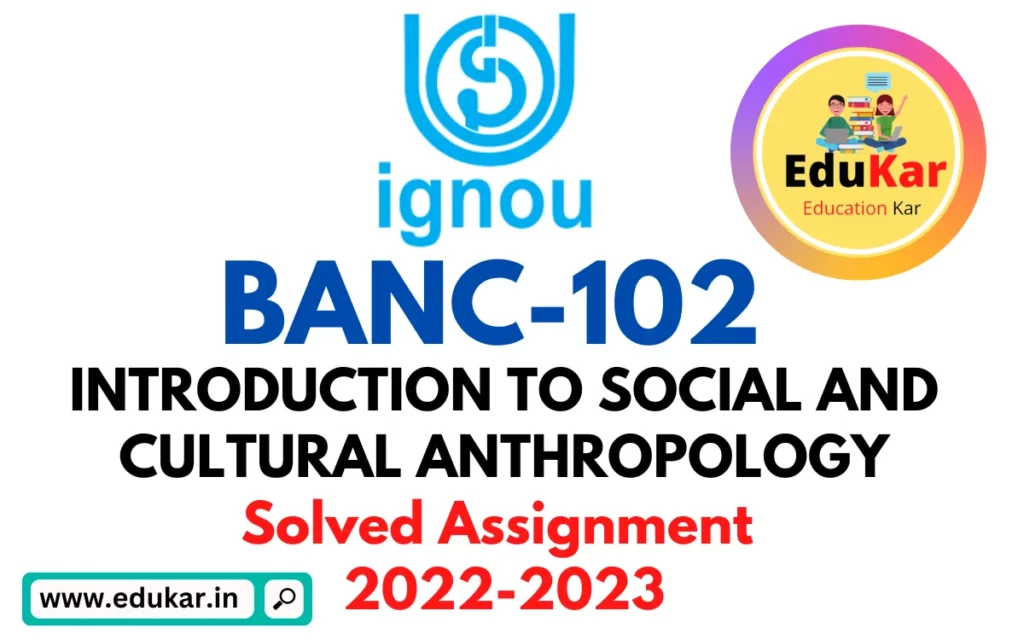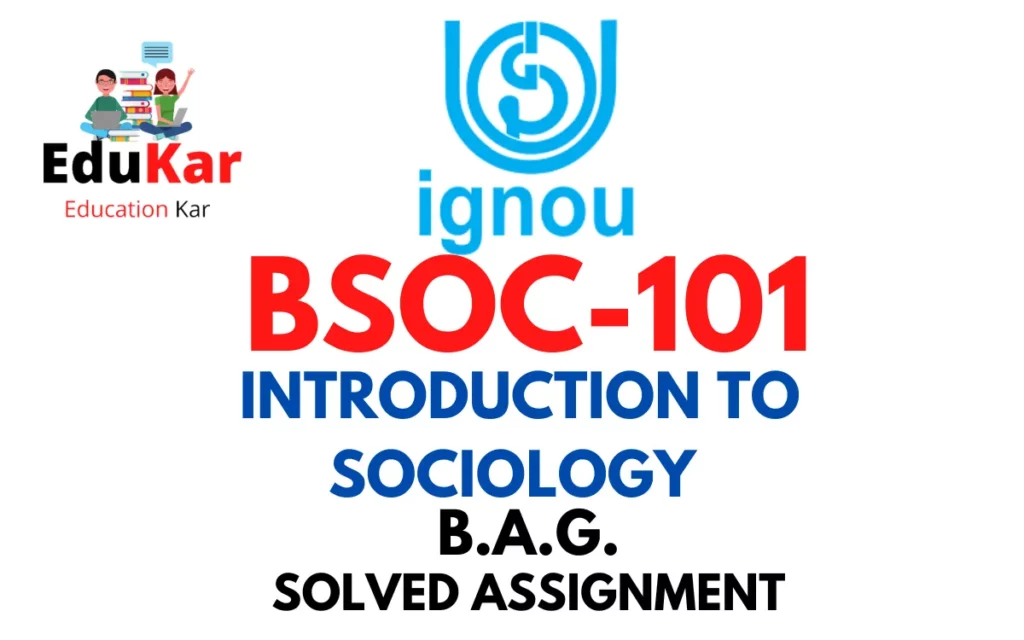Contents
- 1 Assignment – I
- 2 Answer the following in about 500 words each. 20X2= 40
- 3 a. Describe practicing anthropology. Discuss the differences between academic and practicing anthropologists.
- 4 b. Critically analyse the challenges and dilemmas faced by the practicing anthropologists.
- 5 Assignment – II
- 6 Answer the following in about 250 words each. 10X2=20
- 7 a. Discuss the theories of health.
- 8 b. Describe the role of practicing anthropology in policy research.
- 9 Answer the following questions in about 150 words each. 2X5=10
- 10 a. Epidemiology and public health
- 11 b. Role of anthropology in policy research
- 12 c. Participatory research
- 13 d. Development anthropology
- 14 e. Participatory Action Research and Evaluation
- 15 Assignment – III
- 16 a. Prepare a synopsis by identifying a topic that you can work on as a practicing anthropologist. Use rapid assessment procedures (RAP) as a research technique.
- 17 b. Write a note on (a) SONDEO Technique and (b) participatory rural appraisal (PRA)
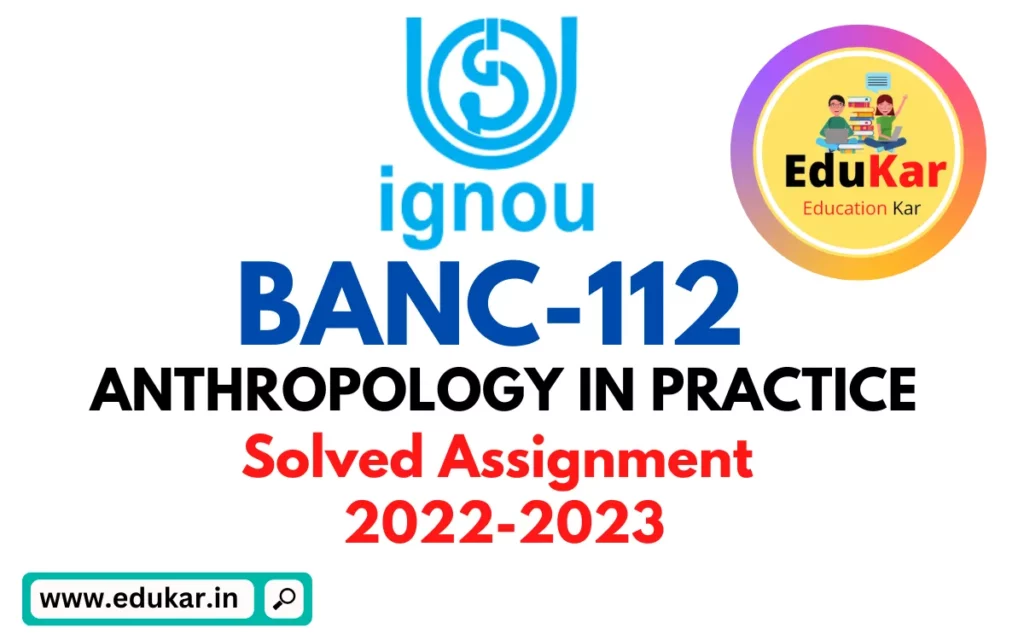
| Title | BANC-112: IGNOU BAG Solved Assignment 2022-2023 |
| University | IGNOU |
| Degree | Bachelor Degree Programme |
| Course Code | BANC-112 |
| Course Name | ANTHROPOLOGY IN PRACTICE |
| Programme Name | Bachelor of Arts (General) |
| Programme Code | BAG |
| Total Marks | 100 |
| Year | 2022-2023 |
| Language | English |
| Assignment Code | BANC 112/ASST/TMA/July 2022- Jan 2023 |
| Last Date for Submission of Assignment: | For June Examination: 31st April For December Examination: 30th September |
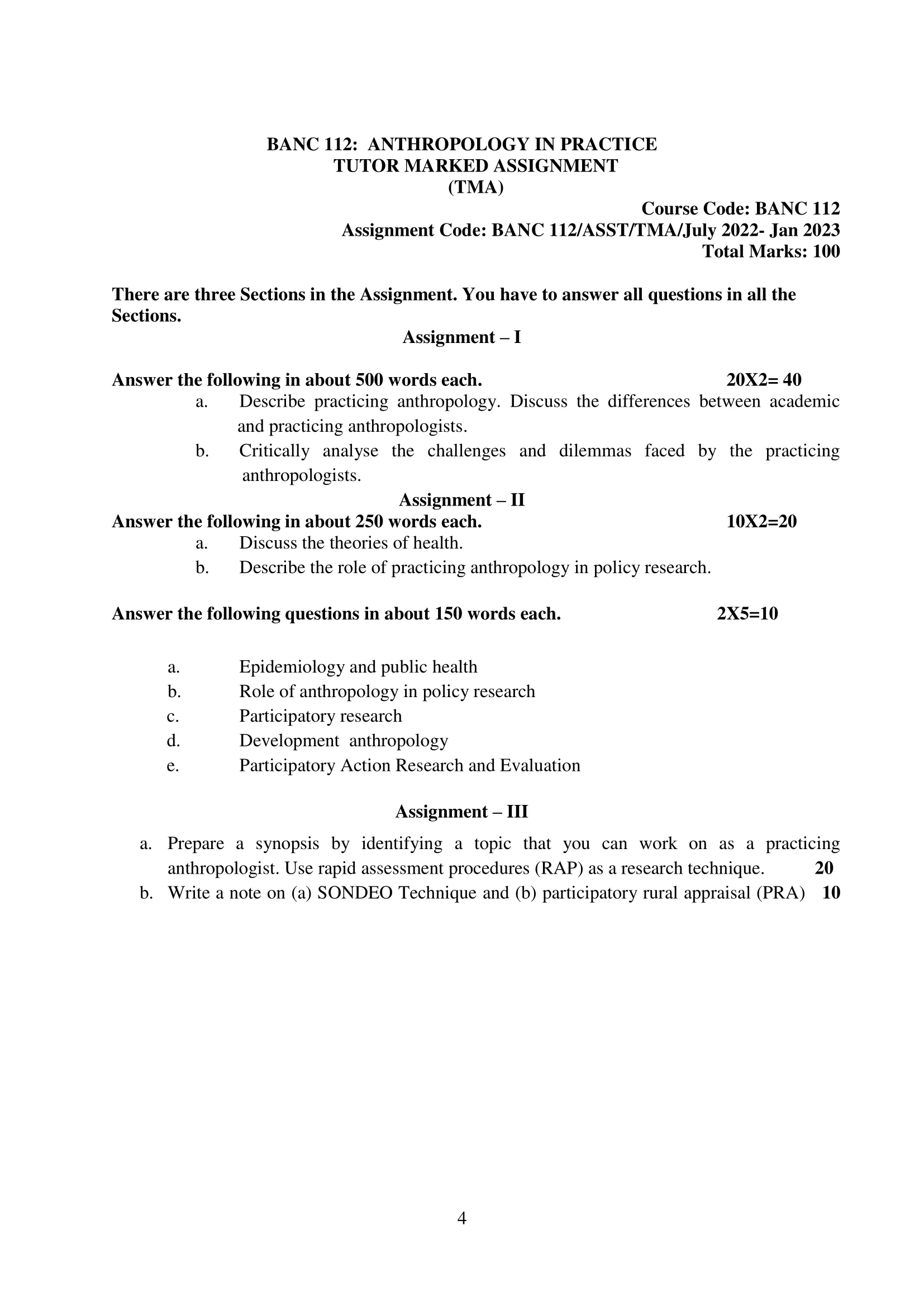
Assignment – I
Answer the following in about 500 words each. 20X2= 40
a. Describe practicing anthropology. Discuss the differences between academic and practicing anthropologists.
Ans: Practicing anthropology refers to the application of anthropological knowledge and methodologies to address real-world issues and solve practical problems. Practicing anthropologists work in a variety of settings such as government agencies, NGOs, private consulting firms, museums, and community organizations, among others. They often collaborate with communities, organizations, and institutions to understand complex social, cultural, and economic issues and to design and implement programs, policies, and projects that are informed by their anthropological insights.
The key difference between academic and practicing anthropologists lies in their respective goals and the primary audiences they aim to reach with their research. Academic anthropologists are primarily concerned with advancing knowledge and contributing to the discipline of anthropology, and they often conduct research for scholarly purposes, such as publishing articles in academic journals or writing books. They usually work in universities and research institutions, where they teach and conduct research.
In contrast, practicing anthropologists are focused on addressing real-world problems and making a practical impact. They apply anthropological knowledge and methodologies to solve problems related to social and cultural issues, development, policy, and other areas of practical concern. Practicing anthropologists often work outside of universities, in settings where their research can directly impact the lives of individuals and communities.
Another difference between academic and practicing anthropologists is their approach to research. Academic anthropologists are often more concerned with long-term, in-depth research that focuses on understanding the complexities of a particular culture or society, while practicing anthropologists tend to be more focused on rapid problem-solving and action. Practicing anthropologists may use shorter-term research methods and may prioritize practical applications over theoretical knowledge.
Finally, academic and practicing anthropologists also differ in their funding sources and revenue streams. Academic anthropologists are often supported by universities, research foundations, and government grants, while practicing anthropologists are more likely to be supported by their clients, who are typically organizations and institutions seeking to address specific problems.
b. Critically analyse the challenges and dilemmas faced by the practicing anthropologists.
Ans: Practicing anthropology can be a challenging and complex field, and practicing anthropologists often face a number of dilemmas and challenges in their work. Some of these challenges include:
- Balancing Empathy and Objectivity: Practicing anthropologists are often called upon to work in close collaboration with communities, organizations, and individuals, and to build trust and rapport with their subjects. At the same time, they must maintain an objective and impartial perspective in order to ensure that their research is reliable and accurate. Balancing empathy and objectivity can be difficult, and practicing anthropologists must be careful not to become too emotionally invested in their subjects or to allow their personal opinions to influence their research.
- Navigating Power Relationships: Practicing anthropologists often work in settings where power dynamics are complex and where their relationships with their subjects and clients may be influenced by factors such as race, class, gender, and culture. It can be challenging for practicing anthropologists to navigate these relationships and to ensure that their research is respectful and inclusive.
- Ensuring Confidentiality and Protecting Participants: Practicing anthropologists are often privy to sensitive and confidential information, and they must take care to ensure that their participants’ privacy is protected. They must also be aware of the ethical implications of their research and be mindful of the ways in which their work may impact the lives of their subjects.
- Balancing Practical and Theoretical Considerations: Practicing anthropologists are often called upon to address practical problems and to design programs and projects that have a direct and tangible impact on communities and organizations. At the same time, they must ensure that their work is based on sound theoretical principles and that it is informed by a deep understanding of the cultural, social, and economic factors that are relevant to the problem they are addressing.
- Managing Conflicts of Interest: Practicing anthropologists are often hired by organizations and institutions to address specific problems, and they may be subject to conflicting interests and pressures. For example, they may be asked to produce research that supports the interests of their clients, rather than what is best for the communities and individuals they are studying. Practicing anthropologists must be aware of these conflicts of interest and take care to ensure that their research is independent and impartial.
Assignment – II
Answer the following in about 250 words each. 10X2=20
a. Discuss the theories of health.
Ans: There are several theories of health that attempt to explain the concept of health and how it can be maintained or improved.
- Biomedical theory: This theory of health views health as the absence of disease and considers medical interventions as the primary means to achieve and maintain health.
- Behavioral theory: This theory views health as a result of individual behavior and lifestyle choices, such as exercise and diet. It emphasizes the role of personal responsibility in maintaining health.
- Social ecological theory: This theory recognizes the influence of multiple levels of the environment, such as individual, community, and societal factors, on health. It proposes that health is influenced by a complex interplay between personal behaviors and the physical, social, and political environment.
- Salutogenic theory: This theory views health as a positive state of well-being and focuses on the resources and capacities that allow individuals to maintain health, rather than simply the absence of disease.
- Humanistic theory: This theory of health emphasizes the importance of individual experience and subjective perception in the definition and promotion of health. It recognizes that health is not only physical but also mental and emotional.
Ultimately, all theories of health acknowledge the complex and multidimensional nature of health and the importance of considering multiple factors in promoting and maintaining health. The most effective approaches to health likely involve a combination of these theories and a holistic perspective that considers the individual, community, and societal influences on health.
b. Describe the role of practicing anthropology in policy research.
Ans: Anthropologists play a critical role in policy research by incorporating cultural and social perspectives into the policy-making process. They help policymakers understand the cultural context of the communities they serve, and provide insights into the lived experiences of individuals and communities that can inform policy decisions.
One of the key ways that anthropologists contribute to policy research is through qualitative methods, such as ethnographic fieldwork, which allow them to gain a deep understanding of cultural practices, values, and beliefs. This information can then be used to design policies that are more culturally appropriate and responsive to the needs of communities.
Anthropologists also bring a unique interdisciplinary perspective to policy research by incorporating insights from other social sciences, such as sociology, psychology, and economics. This allows them to take a holistic approach to policy development that considers the social, economic, and political factors that shape human experiences and impact health and well-being.
Anthropologists also play a crucial role in promoting participatory and equitable processes in policy development. They work to ensure that the voices of marginalized and underrepresented communities are heard and considered in the policy-making process, and they advocate for policies that promote social justice and address structural inequalities.
Overall, practicing anthropology in policy research helps to bring a nuanced understanding of culture and society to the policy-making process and ensures that policies are culturally appropriate, responsive to the needs of communities, and promote equity and social justice.
Answer the following questions in about 150 words each. 2X5=10
a. Epidemiology and public health
Ans: Epidemiology is the study of the distribution and determinants of health and disease in populations. It is a fundamental discipline in public health and provides the foundation for understanding and addressing health disparities and health risks. Epidemiologists use a variety of research methods, such as observational studies, randomized controlled trials, and surveillance systems, to understand the patterns and causes of disease and to identify risk factors for illness.
Public health, on the other hand, refers to the efforts of communities, organizations, and governments to improve health and prevent disease, injury, and disability. Public health professionals work to promote health and prevent disease by designing and implementing programs and policies that promote healthy behaviors and reduce health risks. They also work to ensure that populations have access to quality health care services, and to develop and implement strategies to prevent and control infectious and non-communicable diseases.
Together, epidemiology and public health form a critical and interrelated field, and they play a vital role in promoting health and preventing disease at the population level.
b. Role of anthropology in policy research
Ans: Anthropology can play an important role in policy research by providing a nuanced and in-depth understanding of the cultural, social, and historical factors that shape policy issues. Anthropologists use qualitative research methods, such as ethnography and participant observation, to gain a rich and detailed understanding of the experiences and perspectives of individuals and communities affected by policy decisions. They can use this information to provide policymakers with insights into the cultural, social, and economic factors that influence health behaviors, attitudes towards policy initiatives, and experiences with access to healthcare and other services.
Anthropologists can also use their knowledge of cross-cultural perspectives to inform policy development and implementation in a way that is culturally sensitive and responsive to the needs of diverse populations. Additionally, they can work with policymakers to identify and address unintended consequences of policy initiatives, and to design policies that are more culturally appropriate and effective in promoting health and well-being.
c. Participatory research
Ans: Participatory research is a collaborative research approach that involves active engagement and partnership between researchers and community members or other stakeholders. The goal of participatory research is to empower individuals and communities to play an active role in the research process, and to ensure that research is relevant to their needs and priorities.
Participatory research methods typically include a range of qualitative techniques, such as focus groups, community meetings, and individual interviews, that allow researchers to understand the perspectives and experiences of participants. The data collected through these methods is then used to inform the development of interventions and programs that are tailored to the needs and priorities of the community.
One of the key benefits of participatory research is that it allows researchers to gain a more comprehensive and accurate understanding of the social and cultural factors that influence health behaviors and outcomes. By working closely with communities and other stakeholders, researchers can identify the root causes of health problems and design interventions that are culturally appropriate and responsive to the needs of the community.
Additionally, participatory research can promote community engagement and empowerment by giving community members a voice in the research process and by involving them in decision-making about health and other issues that affect their lives.
d. Development anthropology
Ans: Development anthropology is a subfield of anthropology that focuses on the study of social, cultural, and economic processes of development and change in communities and societies. Development anthropologists work to understand the cultural and social impacts of development initiatives and to identify ways to promote more equitable and sustainable development outcomes.
Development anthropology seeks to address the inequalities and power imbalances that are often present in development initiatives by working with communities to ensure that their perspectives and needs are taken into account in the design and implementation of development programs. This involves working with communities to understand their priorities and needs, and to develop strategies and programs that are culturally appropriate and responsive to their needs.
Development anthropologists also work to understand the cultural, social, and historical factors that shape development processes, and to identify ways to promote more equitable and sustainable development outcomes. They often use qualitative research methods, such as ethnography and participatory research, to gain a rich and detailed understanding of the experiences and perspectives of communities and to inform the development of policies and programs that are culturally appropriate and effective in promoting health and well-being.
e. Participatory Action Research and Evaluation
Ans: Participatory Action Research (PAR) is a collaborative research approach that involves active engagement and partnership between researchers and community members or other stakeholders. The goal of PAR is to empower individuals and communities to play an active role in the research process, and to ensure that research is relevant to their needs and priorities.
PAR is characterized by a focus on action and change, and it seeks to address real-world problems and to promote social, cultural, and economic development. PAR often involves a cyclical process of research, action, and reflection, in which community members and researchers work together to identify and address problems, and to develop and implement solutions.
Evaluation, on the other hand, is the systematic and objective assessment of programs, projects, and policies to determine their effectiveness, impact, and value. Evaluation is an important component of PAR, as it helps to ensure that interventions and programs are effective, and that they are achieving their intended goals and outcomes. Evaluation can also provide valuable information that can be used to improve programs and policies, and to promote more equitable and sustainable development outcomes.
Assignment – III
a. Prepare a synopsis by identifying a topic that you can work on as a practicing anthropologist. Use rapid assessment procedures (RAP) as a research technique.
Ans: As a practicing anthropologist, I would like to work on a topic that explores the cultural practices and beliefs surrounding mental health in a rural community. I will use rapid assessment procedures (RAP) as a research technique to gather information in a time-efficient and culturally appropriate manner.
RAP is an anthropological research method that involves conducting rapid, focused, and qualitative assessments to gather information on a particular topic. In my study, I will use RAP techniques such as key informant interviews, focus group discussions, and observation to gather information on the attitudes, beliefs, and practices surrounding mental health in the community.
The study will aim to understand the cultural factors that influence the perception and treatment of mental health in the community. It will also identify the challenges and barriers that individuals face in accessing mental health services, and the role of traditional healers and community support networks in addressing mental health concerns.
The results of this study will provide valuable insights into the cultural context of mental health in the rural community, and will inform the development of culturally appropriate and responsive mental health policies and interventions. Additionally, this study will contribute to a broader understanding of the ways in which cultural beliefs and practices influence health and well-being, and the role of anthropologists in promoting equitable and culturally appropriate health policies and interventions.
b. Write a note on (a) SONDEO Technique and (b) participatory rural appraisal (PRA)
Ans: SONDEO Technique: SONDEO is a Spanish word that stands for “sounding out” or “exploration”. The SONDEO technique is a qualitative research method that is used in anthropology, sociology, and other social sciences to gather information about a particular topic in a rapid and efficient manner. It is particularly useful in situations where there is limited time and resources available for conducting a full-fledged study.
The SONDEO technique involves conducting structured interviews with a sample of key informants, such as community leaders, local authorities, and other knowledgeable individuals. The interviews are designed to gather information on a specific topic, such as attitudes, beliefs, and practices, and to identify areas for further investigation. The information gathered through the SONDEO technique can then be used to inform policy development, program design, and other forms of decision-making.
(b) Participatory Rural Appraisal (PRA): Participatory Rural Appraisal (PRA) is a participatory research method that involves active engagement and collaboration between researchers and communities. It is a holistic approach to understanding rural communities, their challenges, and their strengths, and it aims to empower communities to take an active role in the development and implementation of programs and policies that affect their lives.
PRA involves a range of techniques, such as community mapping, transect walks, and focus group discussions, that enable communities to share their experiences, perspectives, and knowledge with researchers. The results of PRA studies provide valuable insights into the social, economic, and cultural contexts of rural communities, and they inform the development of programs and policies that are more responsive to the needs and aspirations of communities.
How to Download BANC-112 Solved Assignment?
You can download it from the www.edukar.in, they have a big database for all the IGNOU solved assignments.
Is the BANC-112 Solved Assignment Free?
Yes this is absolutely free to download the solved assignment from www.edukar.in
What is the last submission date for BANC-112 Solved Assignment?
For June Examination: 31st April, For December Examination: 30th October

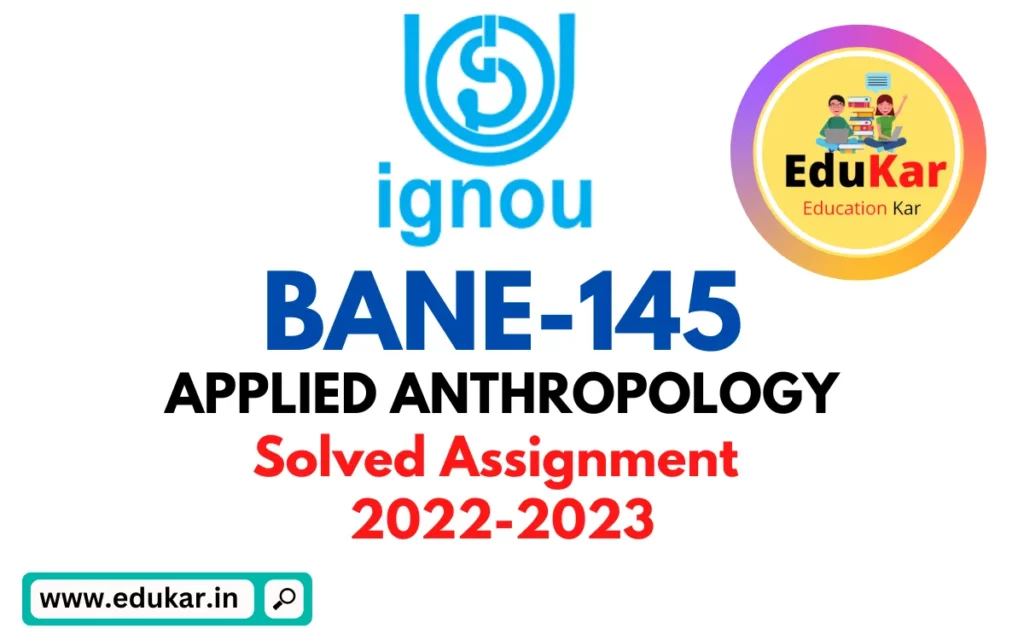

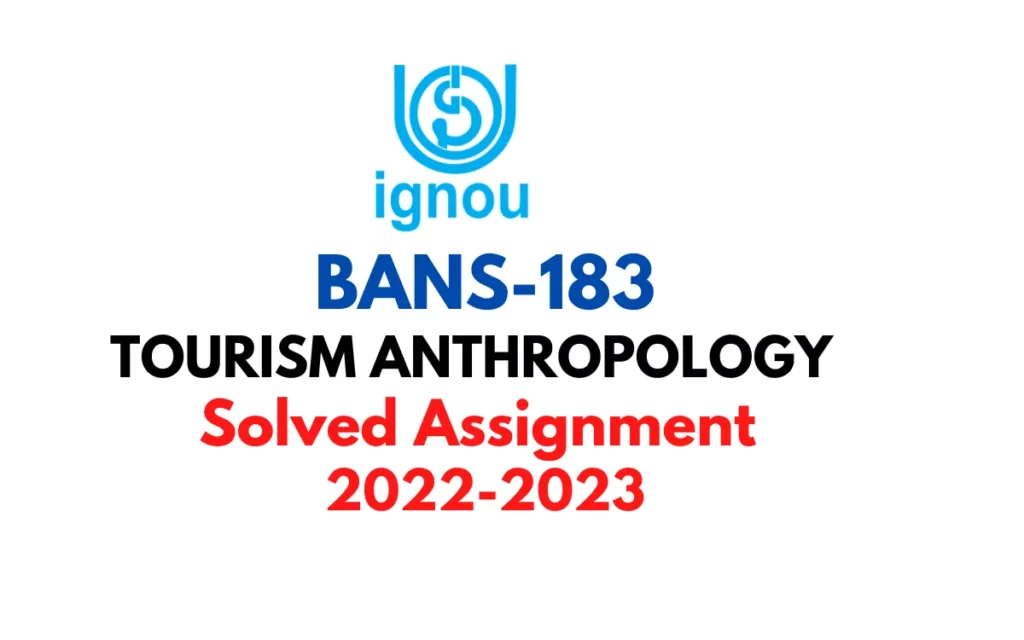
![[Solved Assignment] BPCS 188-APPLICATIONS OF SOCIAL PSYCHOLOGY (IGNOU-BAG) 2022-2023 BPCS 188-APPLICATIONS OF SOCIAL PSYCHOLOGY IGNOU BAG Solved Assignment 2022-2023](https://edukar.in/wp-content/uploads/2023/01/BPCS-188-APPLICATIONS-OF-SOCIAL-PSYCHOLOGY-IGNOU-BAG-Solved-Assignment-2022-2023-1024x640.webp)
